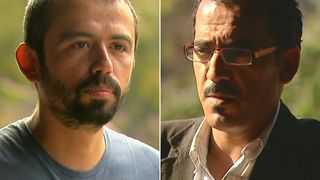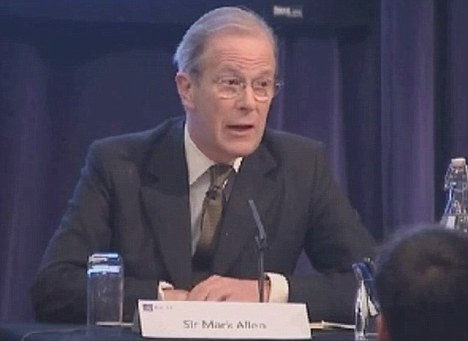Members of Libyan leader Moammar Kadafi’s security forces hauled a team of BBC reporters into custody, beat them up and subjected them to mock executions before releasing the trio 21 hours later, the broadcaster said on Thursday.

The crew’s ordeal began on the outskirts of the strife-torn West Libyan city of Zawiya on Monday, where they were stopped at an army checkpoint.
The men — all working for the BBC’s Arabic service — showed their identification documents and say there were subsequently detained and driven off to a massive military barracks in Tripoli.
Upon arrival there, the men claim they were blindfolded, handcuffed, and beaten with fists, knees and guns by Kadafi’s security force. Then the mock executions began.
“We were lined up against the wall,” the BBC quoted one of the three, British Chris Cobb-Smith, as saying. I was the last in line — facing the wall. I looked and I saw a plainclothes guy with a small submachine gun….Then he walked up to me, put the gun to my neck and pulled the trigger twice. The bullets whisked past my ear. The soldiers just laughed.”
Another member of the team, Feras Killani, a reporter of Palestinian origin who holds a Syrian passport, says he was beaten and accused by his captors of being a spy.
“They hit me with a stick, they used their army boots on me, and their knees,” he was quoted as saying in a transcript from the BBC. “It made it worse that I was a Palestinian…. and they said you’re all spies.”
The cameraman Goktay Koraltan — a Turkish citizen — said they all were convinced they were going to die in the end.
Peter Connors of the BBC World Service’s press office told Babylon & Beyond in an e-mail that the men have left Libya and that they’re not giving interviews.
The BBC has denounced the attack on its reporters in a statement.
“The safety of our staff is our primary concern especially when they are working in such difficult circumstances and it is essential that journalists working for the BBC, or any media organisation, are allowed to report on the situation in Libya without fear of attack,” Liliane Landor, languages controller of BBC Global News, was quoted as saying in the statement.
According to the broadcaster, a senior Libyan government official later apologized about the BBC crew’s ordeal.
Media reports also surfaced on Thursday about an alleged Iraqi national disappearing in Zawiya along with a Brazilian journalist.
–Alexandra Sandels in Beirut
Photo: The BBC’s Goktay Koraltan and Feras Killani were reportedly detained and beaten by Kadafi forces earlier this week. Credit: BBC
L A Times

